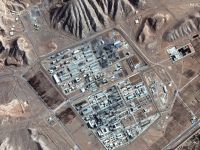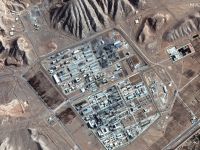Excerpts from a paer by Dr. A.F. Alhajji is a faculty member at Colorado School of Mines, Division of Mineral Economics
Oil companies are thrilled that Kuwait is opening its upstream oil sector for foreign investment despite the fact that:
- The amount of investment allowed is small, merely $7 billion.
- The oil companies will work as operators to provide "technical" advice, the job that they have been doing since 1975.
- Kuwait's constitution prohibits the lucrative profit sharing contracts to prevent foreign ownership of oil reserves.
- Companies are allowed to invest only in the relatively poor and politically sensitive fields in northern Kuwait on its borders with Iraq.
The benefits to Kuwait depend on the objective of the Kuwaiti government when it allowed this participation recently. While the government insists that the objective is "technical", evidence suggests some political considerations. While economic benefits are not clear, political benefits may include establishing a "Security Zone" by allowing foreign investment in its oil sector in the north on the Iraqi borders.
Some of the oil fields are an extension of the Iraqi fields. For example, Ratqa field was once thought to be an independent field until geologists found out that it is part of the large Rumaila field of Iraq. Iraq had accused Kuwait of "stealing" its oil and selling it in the international market and consequently lowering oil prices. Because of this problem, Kuwait's decision to allow American, British and French oil companies is logical. If the Iraqi government gets angry one day, it has to deal not only with Kuwait, but also with the US, England, and France.
A production sharing agreement between Kuwait and Iraq is required to insure the success of those investments. Otherwise, political problems will surface repeatedly and billions of dollars could be lost for the following three reasons:
Iraq may follow suit and allow foreign oil companies to invest in the same area and may provide the oil companies with more lucrative deals than Kuwait. In fact, it may attract the same companies that are operating across the border. In this case, oil companies will produce larger quantities from Iraq at the expanse of Kuwait. Kuwait's losses may be even larger given the heavy taxes imposed on foreign investment on one hand, and the prohibition of sharing contracts in the Kuwaiti constitution on the other hand. This competition may lead to higher oil production, lower oil prices, and more political instability.
Since the fields are either shared or too close to each other, horizontal drilling may take place to extract the largest amount of oil. It is possible to hear in the future that Iraq is producing from the Kuwaiti fields and Kuwait is producing from the Iraqi fields. A production sharing agreement would prevent such a problem from occurring. In fact, this could be happening right now after Iraq recognized Kuwait as a sovereign state, and had to give 1919 feet of Rumaila field to Kuwait. Various UN reports in 1994 show unusual activities on both sides of the border.
Competition among Iraq and Kuwait to extract the largest amount of oil as fast as possible may lower reservoir pressure and damage the reservoir before it is depleted. Hundreds of millions of barrels could be trapped and would be unrecoverable. This problem could be worse than expected if Iraq allows the Russian companies (that are notorious for their lack of technology and inefficiency that led to the premature decline of Russian oil production) to operate in Rumaila field.
Kuwait is considered one of the pioneers in the area in allowing foreign investment in its upstream. While most of the countries in the Persian Gulf are trying to decide on their role in the world oil market, and the role of the private and public sectors in their economic development, Kuwait consolidated its oil sector, privatized many of the government owned companies and allowed foreign investment in its oil sector. However, some observers believe that other countries in the Gulf are waiting to see the preliminary results of Kuwait's move. Others believe that Kuwait's special circumstances forced it to move in that direction. They believe that the success of Kuwait does not necessarily mean the success of such a move in other Gulf countries.
Kuwait may not benefit from allowing foreign investment in its upstream oil industry because it does not need the additional capacity, especially at a time when Kuwait is trimming its production along with other Opec members to increase oil prices. Recently, Kuwait called on Opec members to extend production cuts beyond March 2000 when the current agreement expires, and denied violation of its quota. Kuwait is one of the richest oil countries and is able to make such investment on its own. In fact, Kuwait current and planned investment in the oil sectors of many countries suggests that the decision to allow the foreign oil companies to invest in Kuwait is politically motivated because Kuwait does not lack the capital to invest in its own upstream.
Some analysts see nothing but benefits for Kuwait from the investment of the oil companies in its oil sector. They cite the success of Argentina, Brazil, and Venezuela. Those analysts overlooked the differences between Kuwait and those countries in Latin America. These differences include income, size of the country, population and the volume of oil reserves. They ignore the fact that such investments in Latin America were among the factors that led to lower oil prices in 1998 and early 1999. How would Opec be able to cut production in order to increase prices if the oil sector is controlled by foreign companies that are influenced by the politics of their home countries?
Per capita income in Kuwait is one of the highest in the world and its is more than 20 times that of some of the countries cited above. It is the lack of capital that forced the Latin American countries to allow foreign investment in their oil sector, Kuwait does not lack capital. Kuwait floats on a sea of oil, which means that probability of success is high compared to countries that are so large such as Argentina and Brazil. Kuwait has no economic interest in allowing foreign investment, while it is in the interest of the Latin American countries to allow foreign investment.
Being an important member of Opec, Kuwait faces the problem of over production if it allows foreign investment. This has devastating political and economic consequences since all Kuwait neighbors are Opec members. Kuwait will fall into the same trap that Venezuela fell into few years ago when it allowed foreign oil companies to invest in its upstream. It allowed foreign companies to invest in the poorer fields, while keeping the rich fields under the control of the government owned oil company, PDVSA. Kuwait is repeating the same steps by allowing the foreign oil companies to invest in the poorer, politically sensitive fields while keeping the rich fields, such as Brugan field, under the control of the government owned KPC.
Contrary to Venezuela's expectations, the companies drilled deeper and produced more oil. Venezuela's production increased by more than one million b/d above its Opec quota and prices reached single digits in 1998 and early 1999. Venezuela faced a dilemma, it cannot force the foreign companies to cut production and it needs the revenue from oil sales from its national oil company, PDVSA. Venezuela decided to ignore Opec quota and prices collapsed.
According to the suggested form of contracts between Kuwait and the foreign oil companies, the companies will provide $7 billion in investment to increase Kuwait production by 900 thousand b/d over a period of five years. The companies will receive per barrel payment that will encourage the companies to produce as much as they can which may increase production above government expectations, a repeat of what happened in Venezuela.
Opening the Kuwaiti upstream to foreign investment may have some advantages such as technological transfer and foreign capital investment that would replace the government investment. Competitiveness among various companies will insure efficiency at the lowest cost. In addition, Kuwait and other Opec members will benefit if this foreign investment is diverted from other areas around the world. If Kuwait does not open its oil sector to foreign investment, the $ 7 billion that the companies were willing to invest in Kuwait will be used in other areas around the globe, bringing more oil to compete with Opec oil. In this case, all Opec members should open their oil sector for foreign investment.
One may argue that those benefits are not significant because Kuwait Petroleum Company (KPC) is the seventh largest in the world and well-known for its efficiency and technical abilities. Its technology is comparable to those of first class companies. Especially after rebuilding Kuwait and reconstructing 80% of the companies' facilities that were damaged during the invasion. Therefore, technological transfer may not be the reason to allow foreign companies to invest in Kuwait. In fact, some technology transfer in the past damaged some of the reservoirs in Kuwait when proliferation was used. In addition, Kuwait does not need foreign capital, especially when the amount of investment is small, such the $7 billion that the companies are allowed to invest. In a recent press interview, the oil minister of Kuwait declared that his country did not allow the foreign companies because it needs capital, the KPC which he heads, has $10 billion in cash looking for investment. In addition, foreign investment in new fields around the world will not decline if Kuwait and other Gulf countries open their door to international oil companies. Each country in the world would like to produce oil and encouraging oil companies to search for oil through lucrative deals.
Finally, it seems that political considerations dominated the decision to open the northern oil fields of Kuwait to the international oil companies. Given the small size of these investments and the type of contracts between Kuwait and the oil companies, the impact of these investments on Kuwait and the world oil market is minimal. Kuwait would have developed those fields anyway even without the foreign investment.
© 2000 Al Bawaba (www.albawaba.com)







